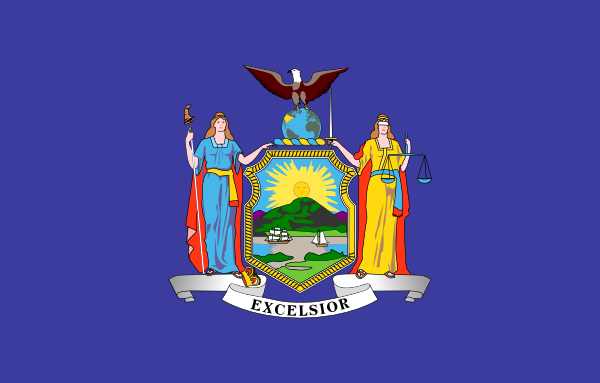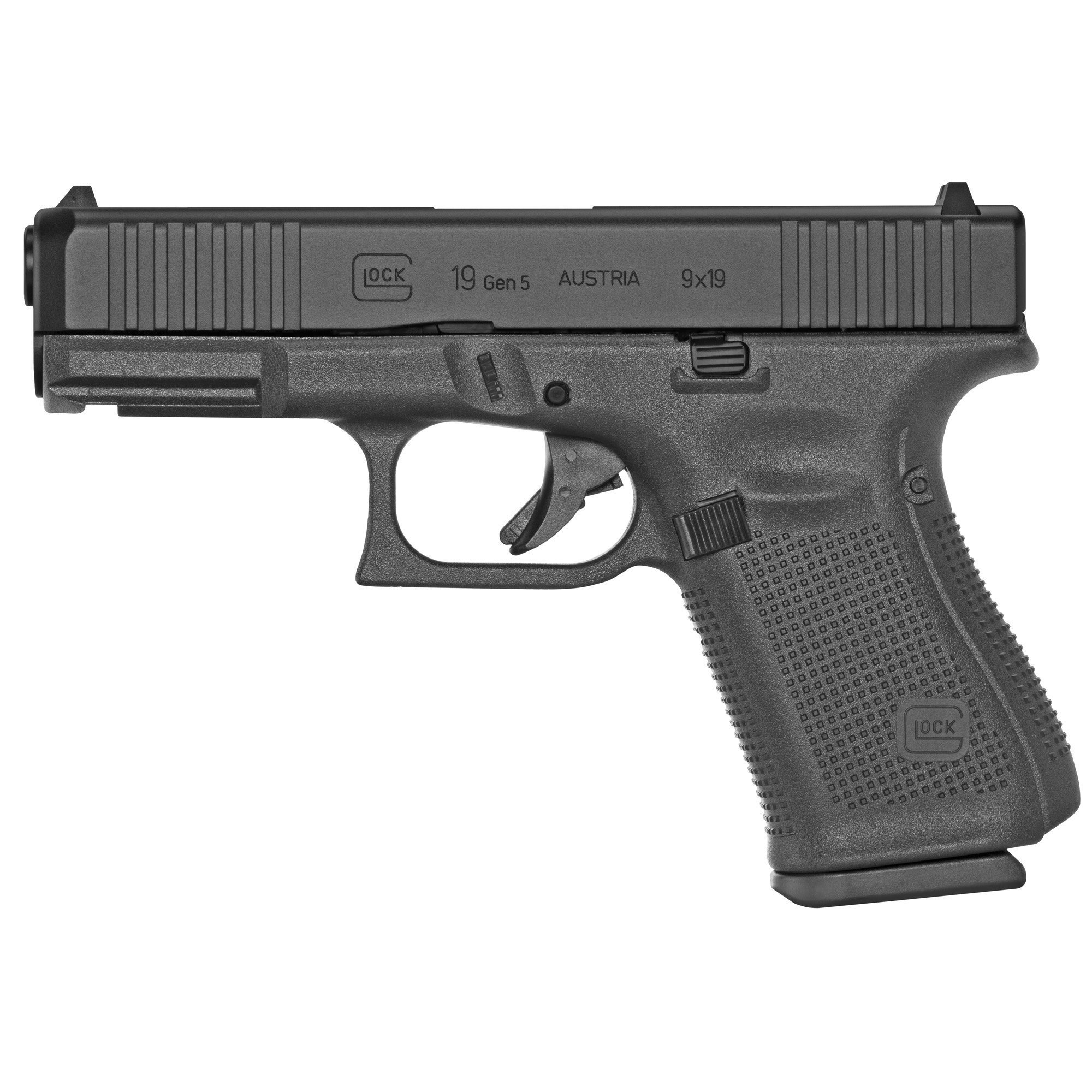NEW YORK CONCEALED CARRY
On June 23, 2022, in New York State Rifle & Pistol Association, Inc. v. Bruen, the United States Supreme Court struck down the 100-year-old New York handgun-licensing Sullivan law that required applicants for conceal carry gun licenses to show "proper cause." The Court decided that New York State's "proper cause" requirement violated the Second Amendment to the U.S. Constitution. New York is now a SHALL-ISSUE State and New Yorkers are now able to exercise their 2nd amendment rights.
NEW YORK CONCEALED CARRY INFORMATION
You must apply in the county in which you live or are principally employed. In Upstate New York apply to the County Court through the office of the court clerk, county clerk or sheriff. In New York City, Nassau County and most of Suffolk County apply to the police commissioner. In eastern towns of Suffolk County apply to the Sheriff. The following information is provided as general information and is not intended to be legal advice. Please consult your local licensing authority for current rules and regulations pertaining to the New York Concealed Carry Improvement Act.
-

New York State Concealed Carry
The requirements to obtain a concealed carry license are:
Proof of completion of a firearms safety training course; four character references; a list of former and current social media accounts for the last three years; disclosure of applicant’s spouse or domestic partner, any other adults residing in the applicant’s home, including any adult children of the applicant, and an in-person interview of the applicant with the licensing officer/designee.
If you have a New York State concealed carry license, you are now required to submit your recertification to the New York State Police every 3 years after issuance instead of 5 years. The new law does not change the recertification requirements for a premises license, which must be recertified every 5 years.
Any individual who seeks to obtain a concealed carry license for a pistol or revolver will be required to take the 16-hour classroom and 2-hour live-fire firearm safety training course. This will be required for concealed carry licenses issued on or after September 1, 2022.
Concealed carry licensees are not permitted to bring guns into certain defined "sensitive locations."
Sensitive locations include, but are not limited to: Airports, Bars and restaurants that serve alcohol, Courthouses, Educational Institutions, Emergency shelters, including domestic violence shelters and homeless shelters, Entertainment venues, Federal, state, and local government buildings, Health and medical facilities, Houses of worship, Libraries, playgrounds, parks (including botanical gardens and zoos), Polling sites, Public demonstrations and rallies, Public transportation and public transportation stations, including subways, buses, and subway stations, Schools, nursery schools, preschools, and summer camps and Times Square.
The prohibition of carrying guns in sensitive locations does not apply to police officers, retired police officers, peace officers, armed security guards, active-duty military personnel, or any person who is lawfully engaged in hunting.
-

NYC Concealed Carry
In addition to the New York State regulations, concealed carry in NYC is regulated at the local level. To carry in New York City/LI a pistol or revolver license must be issued by New York City or Westchester, Nassau, and Suffolk counties. These local licenses expire and need to be renewed every 3 years.
The application fee for a NYPD handgun license and for renewal is $340 (three hundred and forty dollars). The fingerprint fee is $88.25 (eighty eight dollars and twenty five cents). Fees must be paid by credit card or money order (Postal or U.S. Bank). Money orders should be made payable to the “New York City Police Department.”
Concealed carry licensees are not permitted to bring guns into certain defined "sensitive locations."
Sensitive locations include, but are not limited to: Airports, Bars and restaurants that serve alcohol, Courthouses, Educational Institutions, Emergency shelters, including domestic violence shelters and homeless shelters, Entertainment venues, Federal, state, and local government buildings, Health and medical facilities, Houses of worship, Libraries, playgrounds, parks (including botanical gardens and zoos), Polling sites, Public demonstrations and rallies, Public transportation and public transportation stations, including subways, buses, and subway stations, Schools, nursery schools, preschools, and summer camps and Times Square.
The prohibition of carrying guns in sensitive locations does not apply to police officers, retired police officers, peace officers, armed security guards, active-duty military personnel, or any person who is lawfully engaged in hunting.
-

NY Concealed Carry Training Requirements
MINIMUM STANDARDS FOR CLASSROOM TRAINING CURRICULUM
Concealed carry firearm safety training must include 16 hours of in-person live classroom instruction conducted by a Duly Authorized Instructor. The curriculum must include the following topics:
1. General firearm safety, including an overview of firearm and ammunition functions and operation, firearm cleaning and maintenance, safe handling practices, range safety rules, and proper holster considerations and retention strategies for safe concealed carry. (2 hours minimum)
2. Firearm safe storage requirements, as defined in Penal Law §§ 265.45 and 265.50, and general firearm secure storage and transportation best practices. (1 hour minimum)
3. State and federal gun laws, including the possession disqualifiers under 18 U.S.C. § 922(g) and New York State law, restrictions on the private sale or transfer of firearms under New York General Business Law § 898, and requirements for keeping firearm license information up to date, properly registering pistols and revolvers, and license recertification and, if applicable, renewal requirements, including but not limited to the provision set forth in Articles 265 and 400 of the Penal Law. (2 hours minimum)
4. Concealed carry situational awareness of surroundings, including firearm display and concealment.
5. Conflict de-escalation tactics that include verbal and non-verbal strategies, including retreating, that are intended to reduce the intensity of a conflict or crises encountered.
6. Adverse effects of alcohol and drug use as it pertains to firearm safety.
7. Best practices when encountering law enforcement (e.g., a traffic stop), including how to communicate throughout the encounter, considerations for disclosing concealed carry status and displaying a valid firearm license, obeying all commands given by the officer(s), and best practices for handling a firearm and self-identification as a lawful concealed carry licensee if the firearm is visible when an officer responds to an incident.
8. The statutorily defined sensitive places listed in Penal Law § 265.01-e and the restrictions on firearm possession in restricted places under Penal Law § 265.01- d
9. Conflict management.
10. Use of deadly physical force, including the circumstances in which deadly physical force may be considered justified, and when there is the duty to retreat pursuant to Penal Law § 35.15(2).
11. Suicide prevention including recognizing signs of suicide risk and resources to obtain assistance, including a suicide hotline (e.g., 988 Suicide and Crisis Lifeline).
12. Basic principles of marksmanship, including stance, grip, sight alignment, sight picture, breathing, and trigger control. (1 hour minimum)
MINIMUM STANDARDS FOR WRITTEN PROFICIENCY TEST
Following completion of the 16-hour in-person classroom instruction each student must demonstrate proficiency by achieving a minimum correct answer score of 80% on a written test covering the course curriculum. Duly Authorized Instructors must develop or use and administer a written proficiency test that evaluates the student’s understanding of each of the minimum standards defined above.
Duly Authorized Instructors must maintain records of student performance on the written examination for at least five (5) years and shall make such records available upon request by the licensing officer or their designee.
MINIMUM STANDARDS FOR LIVE-FIRE TRAINING CURRICULUM
Concealed carry firearm safety training must include 2 hours of live-fire training conducted by a Duly Authorized Instructor. The curriculum must include instruction on the following topics, for which proficiency will be evaluated during a live-fire assessment:
1. Range safety.
2. Safe drawing, target acquisition, and re-holstering.
3. Dry firing.
4. Safe loading and unloading of ammunition.
5. Performing a firearm condition check, and how to achieve and verify a safe and empty firearm condition.
6. Safely discharging the firearm.
MINIMUM STANDARDS FOR LIVE-FIRE PROFICIENCY ASSESSMENT
Following completion of the 2-hour live-fire training, each student must demonstrate proficiency by successfully completing a live-fire assessment. To complete the live-fire assessment, the student must:
1. Perform a firearm condition check and demonstrate that the firearm is in a safe and empty condition.
2. Without any ammunition loaded, safely draw the firearm from concealment, acquire a target, and safely re-holster.
3. Safely load the firearm with five rounds of ammunition. Not holster the loaded firearm. Maintain a ready position with the firearm safely pointed downrange.
4. On the Instructor’s command to fire, aim at the target and fire all five rounds from a standing position, from a distance of 4 yards. The target must be a 25 ½ inch by 11-inch paper target. At least four out of the five rounds must be on target.
5. Perform a firearm condition check and verify that the firearm is in a safe and empty condition.
Duly Authorized Instructors may allow the live-fire proficiency assessment to be completed using either live ammunition or non-lethal training ammunition, which includes marking cartridges and other forms of simulated ammunition training cartridges that eject a projectile by action of an explosive.
Events
Veterans and Friends Concealed Carry Class June 8&9 2024
Samuel H. Young American Legion Post #620
1530 Hutchinson River Parkway
The Bronx, NY 10461
This is the NYS Required “16+2” hours required concealed carry firearms training class. Class will be held from 10am-6pm on June 8th and 9th. Immediately following the second day of training we will the conduct range qualification on site. To receive a certificate of training students must attend both days of classroom training, pass the written test and the range qualification. All training materials and equipment will be provided. We will have a working lunch on both training days to ensure that we stay on schedule so please bring a baglunch.
Price is $200 for Veterans/1st Responders (Peace Officers, Fire/EMS, DHS/Emergency Management Services, R.N./Physicians) AND/OR their dependents. Veterans/1st Responders and dependents must bring proof of eligibility (Veterans ID, Peace Officer Shield/Credential, Work ID badge, etc. or copy of proof for dependents) Price is $300 for ALL other personnel. Any students who register at the door on the day of the event will be charged $350 IF there is availability so register early. STUDENT REGISTRATIONS ARE LIMITED!
Please wear a long sleeve shirt, pants with belt loops (and a belt), and closed toed shoes on June 9th.
There will be NO REFUNDS for cancellations or no-shows. If you are unable to make it you may choose to be rescheduled for class at a later date. CALL OR EMAIL IF YOU HAVE ANY QUESTIONS. PLEASE BE SURE THAT YOU ARE READY TO TRAIN AND COMMITTED TO BOTH DAYS OF TRAINING PRIOR TO REGISTERING.
